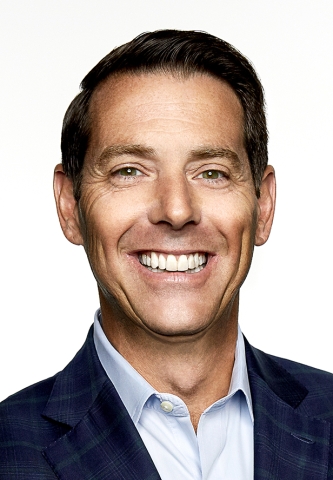TSNN Interview: Joe Popolo, CEO, The Freeman Company

Is the next recession coming? Joe Popolo, CEO of Freeman, doesn’t seem to think so. In the past twelve months, the Dallas-based company completed several acquisitions and sales to stay nimble in the changing marketplace and is gaining ground around the world.
TSNN sat down with Popolo at EFI Connect, a conference for digital imaging and printing that took place last month in Las Vegas, where he shared his thoughts on growing a family company to a $3 billion business, the role of new technologies and overall market trends.
Freeman recently sold Encore Event Technologies to PSAV. What’s the thought process behind that?
We were approached to sell the business and it was a long process for the family to think through, and it was hard to say goodbye to the team, many of whom have been there from the start. But at the end of the day, it will allow us to make a big reinvestment on the Freeman side. We see huge opportunities to grow the business in North America and the rest of the world.
What are some of the geographical markets that you’re exploring?
We’re already in the UK, from where we serve Europe. We’re in the Middle East, in Dubai, and we see an opportunity to expand there. We purchased Info Salons, a data management and registration business and they’re in the Middle East, Asia and Australia, so we’re looking to expand our presence with some other services there. We’re already in Singapore and China. We think there are significant opportunities to expand in all of those markets.
At CES 2019, much of the talk was about artificial intelligence and the impact it’s already having on our lives. How is it changing the event space?
The holy grail for exhibitors and show organizers is to able to measure the effectiveness of events, so we’re doing a big push with our data strategy with our new Freeman Data Solutions. Our Fuzion interface allows all the different data services around events to connect. Sitting on top of that is a new product called Quant that provides decision-based metrics through data visualization. Just from a broader data perspective, we have to help clients make sure they’re spending their marketing dollars as effectively as possible.
With respect to AI, I think it’s going to evolve over time. You can see events being curated by Alexa, for instance. You can see that type of technology used to better connect buyers and sellers, which would make live events that much more valuable. I think it will be a great opportunity to enhance the experience, but I haven’t seen any real-life applications of it yet. For us, the next step was virtual reality, so we purchased Helios Interactive to help us bring AR and VR experiences, but I think combining AI with that will be the next logical step.
What’s changing with the services you’re offering?
We recently purchased mdg marketing agency, as we’re doubling down on helping our clients to market themselves better to attendees. Not everyone has that internal resource. On the event strategy side, we’re constantly looking at how to make existing events more effective, hence our massive investment in digital tools to make the overall experience more valuable and impactful. A lot of it is understanding different personas, such as major attendee groups and buyer groups and then designing an event to satisfy each one. It enables clients to take a different look at their event and employ a different set of strategies.
Are you hiring new types of talent?
As a 92-year-old legacy company, we never thought we’d be hiring data strategists and consultants. But frankly, we’re still very much a people business. We hire a lot out of hospitality programs because they have a great customer service attitude. At the end of the day, all of our relationships are one-to-one with our clients. It’s still a person-to-person connection.
You’ve been in this industry for more than 20 years now. What gets you out of bed in the morning?
When I started, we viewed our business through somewhat of a narrow lens. We had all the capabilities but only used them in certain areas. Now we take things we’ve developed and use them broadly with a variety of organizations, creating entirely new environments and doing that globally. As the world got more connected, the desire for people to get face-to-face only got stronger, and it’s still the best way to deliver information and make a connection. It’s still a massive opportunity for us.
What do you think is in store for trade shows in 2019?
There’s a lot of talk about recessions but I don’t see it. I still feel that live events are the best medium for connecting buyers and sellers and for creating brand experiences. It’s more important than ever for show organizers to invest in their events and continue to turn them into “must-do” experiences.
Don’t miss any event-related news: sign up for our weekly e-Newsletter HERE and engage with us on Twitter, Facebook, LinkedIn and Instagram!


Add new comment